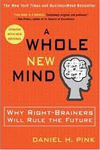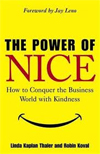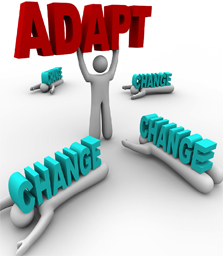PRESS

The Dreaded “E-Word” and Helping Generation Me “Get it”
AUGUST 20, 2012
By Mara Weissmann
A “perfect storm” is an expression that describes an event “where a rare combination of circumstances will aggravate a situation drastically.” Allow me to describe the perfect storm brewing among our wonderful teenagers…those we call Millennials, Gen Y, or as one psychologist calls them, “GenerationMe.” They were born between 1977-2000. Research tells us that they have been raised in a child-focused world where we, boomer generation parents–who have witnessed some of the worst violent acts of our time–have had an undying need to protect and instinctually want to shield them from harm, failure, pain, and hardship.
Our educational system and society, in general, in the years after 1980, have placed a primary emphasis on increasing our kids’ self-esteem. How many “All About Me” or similar projects did your kids bring home throughout their pre-school, elementary, middle school, and high school education? Self-esteem is not a bad thing except when, “[it is] based on nothing [, it] does not serve children well in the long-run; it’s better for children to develop real skills and feel good about accomplishing something,” said Martin Seligman, PhD and Master of Applied Positive Psychology. Nothing exemplifies this better than a National headline a few weeks ago that read “8 Year Old Gets ‘Catastrophe Award’ for Most Homework Excuses.” Is this what our education system has come to–rewarding for failure? So, components of a “perfect storm” have begun to converge: over-emphasis on self, parents who admittedly over-protect, advocate every argument on behalf, pave the way, and shield from failure, harm and hurt, and an education system that constructively criticizes by giving awards and trophies to all equally for often not much.
It is of little wonder that our kids have high expectations of themselves and those and work places with whom they come into contact. Indeed, employers have characterized them as having “outlandish expectations.” Employers experience our kids to be the “E” word . . . not Energetic, not Educated, but Entitled. Surprised? High School English teacher, David McCullough, recently got national acclaim for his commencement address when he told the graduating seniors: “You’re not special, you’re not exceptional. Contrary to what your U9 soccer trophy suggests, you’re glowing 7th grade report card, despite every assurance of a certain corpulent purple dinosaur, that nice Mr. Rogers and your batty Aunt Silvia; no matter how often your maternal caped crusader has swooped in to save you, you are nothing special. Yes, you’ve been pampered, cosseted, doted upon, helmeted, bubble wrapped. If everyone is special then no one is.” All this teacher did was give them a heads up: it’s a tough world out there.
Many of our kids, from my mouth to G-d’s ears, will eventually enter or are in the working world, a world that is not as nurturing as the world in which they were raised and educated (mildly stated). Researchers, educators and employers have opined that our kids are “ill-prepared” and “less able,” from a behavioral and emotional intelligence perspective, for that real world.
And so, a perfect storm lies ahead, particularly when our kids are faced with the first round of criticisms, bosses who have bad personalities, challenging situations that call for thoughtful strategies, navigating changing jobs in an informed process, and promotions and salary increases not happening within the time-frame they expect. What can we, as parents, anticipate? Calls home conveying misery and disappointment, loathing “sitting at a desk job,” anxiety, depression, and the list goes on. It is not all bad. So many of our kids find wonderful jobs and pursue careers that are rewarding. Sometimes, though, they don’t have the in-house mentor to help them navigate the tricky political waters or the next move and parents, face it, are not as objective, under the circumstances.
With 25 years of practicing employment law, HR and workplace strategies, I have teamed with Harvey Robbins, PhD, an industrial psychologist (IP) who worked for the CIA, among other well known governmental agencies and companies. Together, we developed SharpenUrEdge™, a group and one-on-one behavioral-based training program and advisory service for young adults (ages 17-35).
Young adults today are part of the most capable generation on earth. Imagine, though, if they were cognitively smarter about people and the work world landscape, more clinically insightful about themselves and others. Imagine further if they were more psychologically equipped to drive outcomes and face real world challenges and the different personalities that make up that world. And then imagine them phoning home to highlight their successes instead of calling about defeat: awesome thought.These skills are important to acquire early so they become instinctual when needed. Our approach has proven successful with many young adults–they feel more empowered and equipped with substantive strategies to achieve their goals, they have obtained networking leads for jobs, they feel prepared for interviews, and they have gotten into graduate school and obtained jobs. They come in from the storm.

 A Whole New Mind
A Whole New Mind Generation Me
Generation Me The Power of Nice
The Power of Nice



